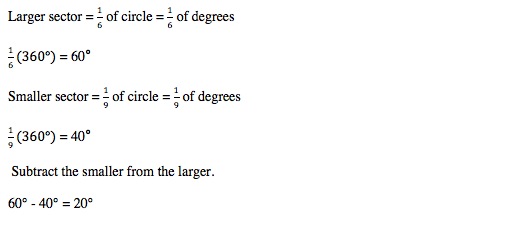Sentence Completions
Select the words that best fit the meaning of the sentence as a whole.
Seeing the ------- bicycle, which was over 80 years old now, made the elderly man feel ------- for the carefree days of his youth.
A. recalcitrant . . abstemious
B. precursory . . cynical
C. arcane . . somber
D. hackneyed . . tenacious
E. antiquated . . nostalgic
Knowsys Method
Always start by covering up your answer choices so that they do not distract you. Read the sentence carefully, and then predict what you think the answer should be. In two-blank sentence completions like this one, predict the easier blank first. The first blank in this sentence is easier because there are more direct context clues, so we will start there. If a bicycle is over 80 years old, what word would you use to describe that bicycle? Probably "old," "rusted," "disused," something along those lines. With those predictions in mind, let's look at the answer choices for the first blank.
A. "Recalcitrant" literally translates from French as "kicking back." The word is typically used today to mean "stubbornly defiant or resistant of authority." Think of a stubborn mule that does not want to go anywhere and kicks you when you try to make it move. This word does not match our prediction, so eliminate this choice.
B. "Precursory" comes from the Latin "praecursor," which means "forerunner." The word still means the same thing today; something "precursory" is something that comes before or leads to something else. For instance, like land line telephones were the precursors to cell phones. This word somewhat matches our prediction, though not exactly. We should keep this choice for now and check the second blank later.
C. The word “arcane” shares a common root with the word “ark” (perhaps best known from Biblical story of Noah’s Ark). Both come from the Latin word “arca,” meaning “chest, box, or place for safekeeping.” Something “arcane” is mysterious, secret, or known only to a few. This choice does not match with our prediction, so eliminate it.
D. The word "hackneyed" has a complicated origin. It comes from the Old English "Hacan ieg," or "Hook Island," an area of land that is a part of contemporary London. Horses were once kept on Hook Island, so the term "hackney" came to refer to a horse that could be rented out for hire. "Hackneyed" meant "kept for hire," but it eventually developed a new meaning, "unoriginal or trite." This makes sense, since if something is rented out over and over again, it will become overused.
E. Have you ever heard the word “antique?” If so, you can probably guess what “antiquated” means. Both terms come from the Latin word “antiquus,” meaning “ancient, former, or aged.” Something antiquated is old and outdated. This matches our prediction, so keep this choice.
Now, focus on the second blank. This man is feeling (something) for the carefree days of his youth. He is probably feeling a sense of longing for his youth. Using that as our prediction, let's look at the remaining choices.
B. The word "cynical," which means "distrustful of human nature," refers back to a school of Greek philosophy, the Cynics, who believed that people must reject indulgent pleasures and luxury and live a simple life. This choice does not match our prediction, so eliminate it.
E. "Nostalgia" means "homesickness or a wistful yearning for the past." The term comes from the Greek words "nostos," or "homecoming," and "algia," or "distress." This choice matches our prediction, so E must be the correct answer.
The correct answer is E.
Source: Online Etymology Dictionary. Dan Harper. 2013. Web. 13 Jan. 2014.
Words used in this SC:
recalcitrant: stubbornly defiant and resistant of authority
abstemious: not eating or drinking too much
precursory: preliminary, coming before something else
cynical: distrustful, especially of human nature
arcane: mysterious or understood by only a few
somber: gloomy and melancholy
hackneyed: unoriginal or trite
tenacious: persistent
antiquated: outdated or related to the past
nostalgic: 1) homesick or 2) feeling a wistful yearning for the past
Want some help with SAT Vocabulary? Check out these helpful resources:
Subscribe to Knowsys SAT & ACT Blog by Email











